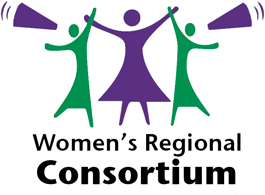The Covid pandemic has had a significant impact on the incomes of many people. Job losses and reductions in working hours due to lockdowns and Government imposed restrictions have meant that many people have got into debt or further into debt as a result. The pandemic has worsened many existing inequalities and the situation for women and those on the lowest incomes. Many will continue to struggle as Government supports are withdrawn leading to an increased potential for spiralling debts.
The cost of living crisis which has followed the pandemic has seen soaring costs for the essentials especially food and energy bills. This is most concerning for the poorest households who spend a higher proportion of their incomes on these essentials. The cost of living crunch will add significant pressure on the already stretched budgets of low income families increasing poverty and their vulnerability to debt. High-cost credit products are often used by those on the lowest incomes in order to access credit. Many of these borrowers have limited options to access cheaper forms of credit because of their low income. This forces them to use these high interest products to buy essential goods and larger purchases that they otherwise could not afford.
Some of the most vulnerable borrowers are forced into using illegal lending or loan sharking because of a more urgent need for money. In Northern Ireland this type of lending is often linked to paramilitary groups bringing with it even greater levels of fear and secrecy. Women used a range of borrowing, much of it high-cost credit, as well as a significant amount of informal borrowing from family/friends. Their choice of lender was most often driven by the knowledge that they would be able to get the money and that it was convenient and easy to apply. Some of the women reported borrowing from illegal lenders mostly as a result of a more desperate need for money for essential expenditure. Repaying the high interest rates from both legal and illegal high-cost lenders put significant pressure on women’s budgets and often led to a cycle of debt that they found it hard to escape from.
Government must work in a number of areas to help alleviate problem debt. There is a need for a long-term, targeted approach to help those on social security benefits and in low-paid work to cope with the cost of living crisis. The fact that these rising costs affect everyday essentials and are likely to last for some time into the future requires urgent and focused action to avoid even more serious debt problems.
Women living with debt were clear about what needed to change in order to help with their financial situation and debts. They stressed the need for increased incomes through social security benefits and in low-paid work so that they could afford to put food on the table, heat their homes and provide for their children and families with dignity.
This article is an excerpt from our Women Living with Debt research


